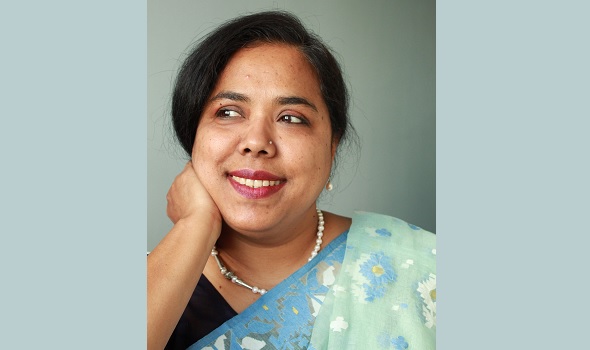Rupa tastes success after a difficult journey
Rupa tastes success after a difficult journey

When Shaheda Banu Rupa moved to Britain with her husband and three-year-old daughter, it felt like the greatest mistake of her life.
Life in London and then Oxford was a struggle: "The physically demanding work, the blatant racial discrimination, my compromised health, and my immigrant status made my life unbearable.”
The Bangladeshi university graduate (Geography and Environment) had emigrated with her husband in 2006 (he came under the Highly Skilled Migration Programme), and in Oxford she and her husband secured jobs with Tesco. But they were living with friends, and began to think about how to give their two children a better life.
They decided their only option was to open a restaurant, Ragini, in Exeter, “to find some peace of mind and heal that sickness from being detached from our motherland.”
Getting the business off the ground was a struggle, too. The young couple had no capital and start-up experience. Borrowing would be crazily risky when they hadn’t yet sorted out their British citizenship.
For three years every day was a battle, Rupa recalls, whether it was managing staff, answering unreasonable customer demands, or facing contempt from more experienced business owners. One of the toughest experiences was sparked by an employee who lied about his immigration status, which resulted in Rupa being fined £20,000. (“Check, check again, and recheck the law,” is the lesson she learned.)
The factor that gave her hope was the number of people who treated them warmly and with respect, and ultimately became close friends.
The turning point came in year four, when she began experimenting with food and introduced her signature dishes. These included ‘Benarasi Chicken,’ named after the red silk sari that Bangladeshi women wrap themselves in, and ‘Oh Calcutta’, which formed in her mind years before as she passed a Dhaka storefront with the same name.
“The sheer joy I felt when these dishes struck people, today regularly ordered as hot favourites, is why I love my business,” she says. “Most of all, I love watching the man who has only ever known the Chicken Tikka Masala of the British Raj, or the lady who cannot handle spice relishing my dishes.”
The business recruits and trains local people and has enabled her to help others: “Charity has become a tangible objective that gives me the most satisfaction. Local schools, air ambulance, the food bank, community workers, orphans in Kushtiya, Bangladesh: I can give them all actual, valuable support.”
As a migrant, she takes particular personal satisfaction in the visit by her mother and mother-in-law to her second home country, the UK, a year before her mother died. It was a priority and she says she is grateful that she was able to organise the visits.
Rupa happily pays tribute to “the vast social network of inspirational women in my community, to whom I look up to and who support each other greatly.” Groups such as the 2,500-strong Lyme Bay Ladies in Devon and Dorset, and individuals like Lisa Eastwood, “One of my icons, who has been an incredible team leader and fighter of cancer, continuing her business strong-headedly despite her struggles”, and her friend Marie Holmes, “a single mother and a business owner, helping people with aromatherapy and reflexology while fighting alone, caring for her parents, and battling physical illness”.
She has a few tips to pass on. Enjoy yourself as much as you can, but wisely. If you want to eat something new, try it. If you have a crazy idea, explore it. Truly engage with the people around you. In doing so, you will forge lifelong friendships with others, which is key to a satisfying life.
To migrant women, she says that though it is hard, you must love a country and its people and try not to think of them as foreign: “Welcome the new land as your mother and she will eventually love you back, however much you feel attacked in the beginning. Most of all, learn her language.”


